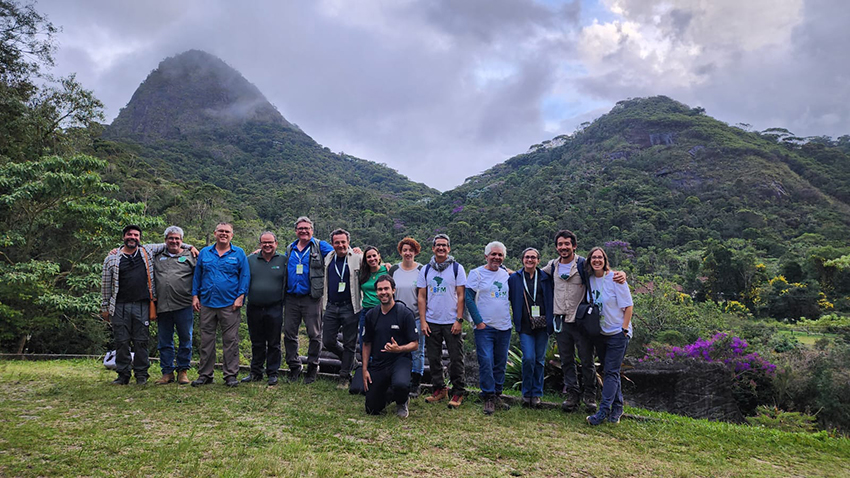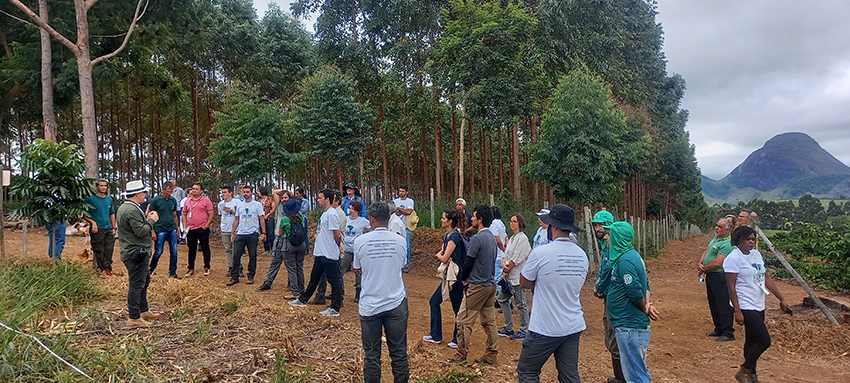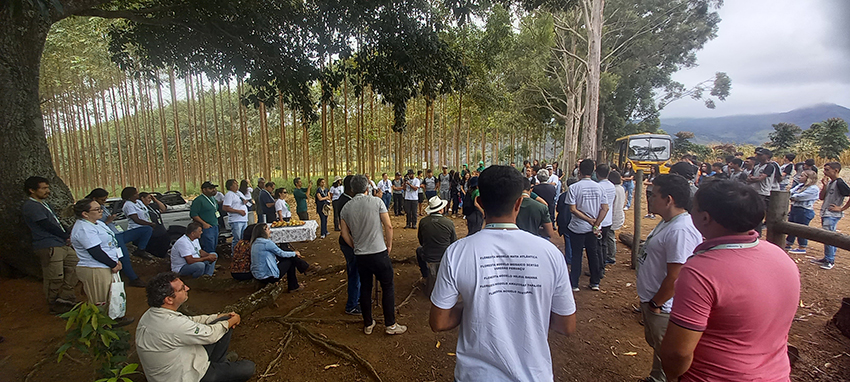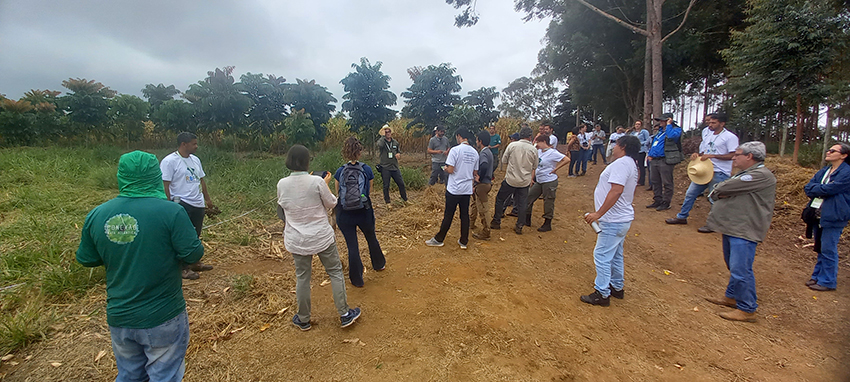CATIE supports participatory governance of forest landscapes in Brazil

- During the meeting in that country, the participants also shared experiences and lessons learned from the various processes of research and promotion of human development in areas such as the sustainable production of timber and non-timber forest products.
Friday, March 31, 2023. Researchers from the Climate Action Unit of CATIE (Tropical Agricultural Research and Higher Education Center) participated in the first meeting of the Brazilian Model Forest Network (RBBM, its Spanish acronym) held March 27-29 in Minas Gerais, Brazil, providing guidance on participatory governance of forest landscapes through the Model Forest approach.
The Brazilian Model Forest Network is an organization presented during the previous board meeting of the Latin American Model Forest Network, which is a knowledge exchange network between social platforms of forest landscape governance coordinated from CATIE, as a chapter of the International Model Forest Network.
The RBBM seeks to consolidate these participatory governance processes in Brazil for the construction of synergies around sustainability, which are already working in ecosystems as varied as the Amazon, Pantanal, Atlantic Forest, Cerrado, Caatinga and Araucaria forests, and in regions as widely distributed as Pará, Bahia, Mato Grosso do Sul, Minas Gerais and Paraná, noted Max Yamauchi who, from CATIE, supports the development of the RESTAURAcción project, financed by the Canadian government to contribute to restoration processes in Model Forests.
During the meeting, the challenges of participatory governance for sustainable development in Brazilian forest landscapes were analyzed, experiences and lessons learned from the various processes of research and promotion of human development in areas such as the sustainable production of timber and non-timber forest products, the construction of social agreements involving various cultural approaches and public and private interests, land management and a wide range of approaches to the restoration of specific landscapes and ecosystems were shared.
Conservation and forest landscape restoration efforts in the Mata Atlântica region were also presented in the field.
"Participatory intersectoral governance processes are an opportunity to promote new approaches to territorial management that give local inhabitants the possibility to build their resilience and improve their capacity to adapt to climate change in Brazil," said Róger Villalobos, CATIE researcher and president of RLABM, who participated in the opening of the event. "These governance platforms in Brazil already account for nearly 13 million hectares and are home to 3.5 million people," said Kolbe Soares, researcher at WWF Brazil and president of the RBBM.
For his part, Fernando Carrera, CATIE researcher and RLABM manager, noted how the creation of the RBBM greatly expands the possibilities for technical collaboration for development and adaptation to change between Brazil and the other 15 countries in the RLABM, as well as demonstrating the interest of various institutions in the region in promoting participatory landscape governance as a route to conflict resolution and the search for synergies between different social sectors.



More information/written by:
Roger Villalobos
Academic Coordinator of the Master's Program in Management and Conservation of Tropical Forests and Biodiversity
Tel: (+506)25582171



